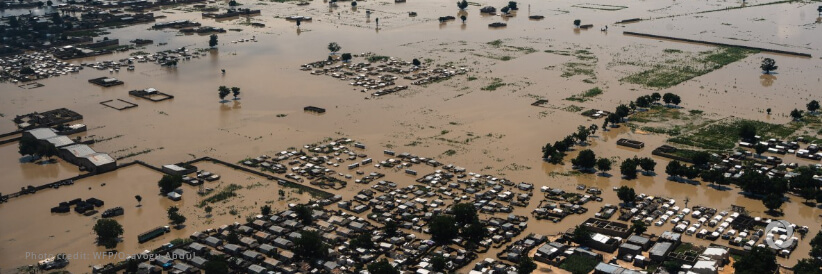Recent flooding in Cameroon has affected more than 400,000 people and upended lives and livelihoods, as the country grapples with acute food insecurity amid rising food prices, conflict, displacement, and climatic shocks.
The United Nations World Food Programme (WFP) is rolling out an urgent assistance programme to help 200,000 people affected by flooding and displacement in the country. It urgently needs US$17.7 million. Without immediate support, thousands of families, including children, will face severe food shortages and health risks.
The floods are hitting people hard. Conflict and displacements have led to a significant deterioration in the food security situation, exacerbated by rising food prices and an increase in the frequency and severity of climatic shocks, especially in the northern regions. This year, 2.5 million people face acute food insecurity—over 70 percent of whom are in crisis-affected regions.
WFP operational update
The October flooding has affected over 400,000 individuals across 68,000 families in the Far North region, including more than 139,000 young children and 29,000 pregnant women. The floodwaters have destroyed over 56,000 homes, inundated 262 schools, and damaged 65 health centres. Worryingly, 82,000 hectares of farmland are underwater, threatening food supplies and worsening food insecurity.
Since August, over 13,800 people have fled to safer areas such as Kousseri and Logone et Chari. Many are staying with relatives or in temporary camps, but resources available to assist them are quickly running out. Although the government, local leaders, and aid organizations are providing some help, the needs are still overwhelming. Currently, US$ 3.8 million has been secured, which covers just 22% of what is needed.
WFP floods response
- Emergency food distributions: WFP is working to deliver lifesaving food and nutrition assistance to 200,000 people affected by the floods. Over the next three months, WFP aims to reach 100,000 people with essential food items, including cereals, pulses, cooking oil, and salt, to meet immediate dietary needs for the next 3 months.
- Emergency nutrition distributions: To fight malnutrition among flood-hit communities, especially among women and children, WFP provides nutritional supplements and promotes healthy eating habits.
- Cash transfers: WFP is providing cash transfers of 9,000 XAF (about US$ 15) per person per month to flood-affected individuals from September to December 2024. The cash assistance empowers families to buy the foods they prefer, which helps them maintain healthier diets and supports their recovery.
To sustain these efforts, WFP urgently needs US$ 17.7 million to deliver timely assistance and prevent further deterioration of food and nutrition security for families displaced by the floods.
WFP’s ongoing efforts are made possible thanks to generous funding from donors such as USAID’s Bureau for Humanitarian Assistance, the European Commission’s Humanitarian Aid & Civil Protection, Germany, and internal WFP funds designated for rapid emergency responses.

